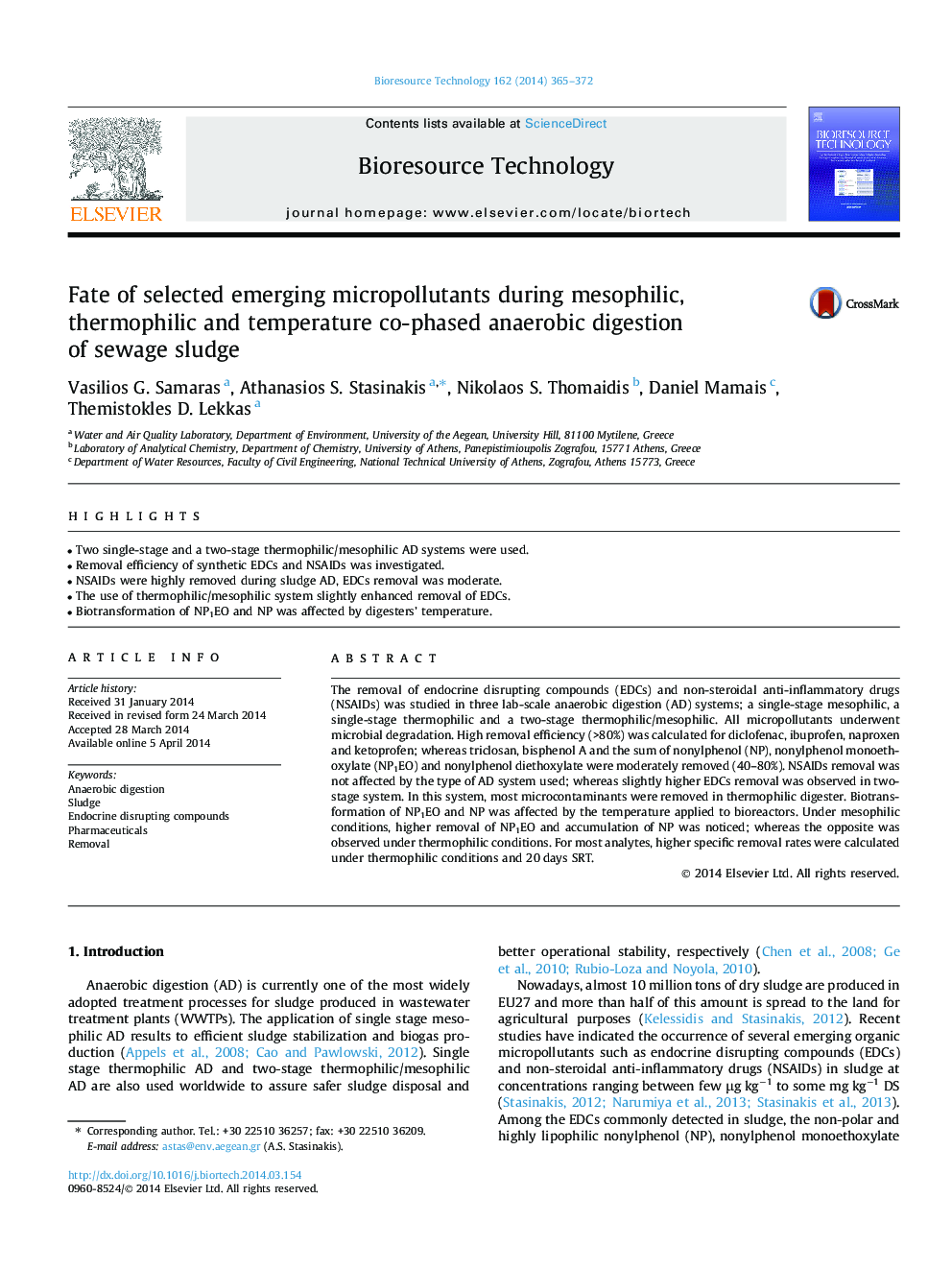| Article ID | Journal | Published Year | Pages | File Type |
|---|---|---|---|---|
| 7078128 | Bioresource Technology | 2014 | 8 Pages |
Abstract
The removal of endocrine disrupting compounds (EDCs) and non-steroidal anti-inflammatory drugs (NSAIDs) was studied in three lab-scale anaerobic digestion (AD) systems; a single-stage mesophilic, a single-stage thermophilic and a two-stage thermophilic/mesophilic. All micropollutants underwent microbial degradation. High removal efficiency (>80%) was calculated for diclofenac, ibuprofen, naproxen and ketoprofen; whereas triclosan, bisphenol A and the sum of nonylphenol (NP), nonylphenol monoethoxylate (NP1EO) and nonylphenol diethoxylate were moderately removed (40-80%). NSAIDs removal was not affected by the type of AD system used; whereas slightly higher EDCs removal was observed in two-stage system. In this system, most microcontaminants were removed in thermophilic digester. Biotransformation of NP1EO and NP was affected by the temperature applied to bioreactors. Under mesophilic conditions, higher removal of NP1EO and accumulation of NP was noticed; whereas the opposite was observed under thermophilic conditions. For most analytes, higher specific removal rates were calculated under thermophilic conditions and 20Â days SRT.
Related Topics
Physical Sciences and Engineering
Chemical Engineering
Process Chemistry and Technology
Authors
Vasilios G. Samaras, Athanasios S. Stasinakis, Nikolaos S. Thomaidis, Daniel Mamais, Themistokles D. Lekkas,
